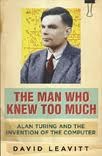I have decided that this year is the year I really think about what I’m reading. And I mean this in terms of deliberately introducing diversity into my reading schedule. Last year I was rather preoccupied with a serious year of education and in my spare time (i.e. time outside of the constant and steady drip of history textbooks) I was thirsty for literally anything OTHER than my set books, and so as a consequence my reading year for 2017 displays a starling amount of white authors, most white women so I suppose in terms of gender diversity I did okay, but nevertheless I noted that this year I could do with shaking things up a bit.
Primarily my reading material consists of young adult books, with the occasional smattering of non-fiction and historical-fiction thrown in there, and in my opinion, the young adult genre is one of the most diverse and forward thinking genres within the bookish world, which lends itself excellently to a diverse year of reading. Handy.
In case you haven’t grasped it yet, reading diversely is incredibly important in today’s society, different viewpoints, experiences and cultural education are just a few of the benefits, but representation within the publishing world is something that needs serious work, and we can do our bit by demanding equal opportunities for all types of authors from the publishers, we can make a change, even if it’s a small one it’s so worth it.
And so, instead of just grabbing the next book on my (ever growing) TBR pile I now make the effort to just stop and think about the book and the author before I pick a book up, hopefully making my year of reading a truly representative and diverse experience. So far highlights have included Love, Hate & Other Filters and Children of Blood and Bone and through reading both of these I have learnt things I didn’t know about Indian culture and diversity within the young adult fantasy genre.
Hopefully this hasn’t come across as too preachy, but it is something that needs to be talked about and I’m trying to improve the way I read, and if in doing that, I manage to encourage one other person to try to read more diversely, well then this will all be worth it 🙂 Let me know how you make sure that your reading is representative, or if you have any questions or book recommendations for me then leave them below :D!
Thanks, Until Next Time x

